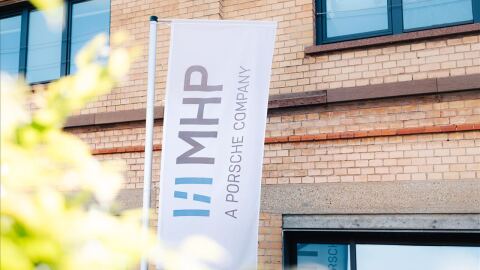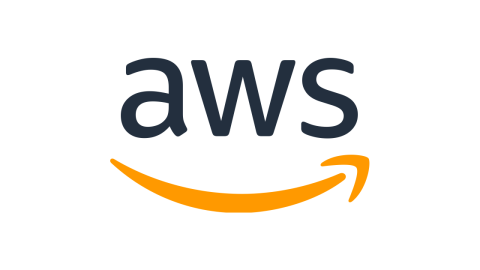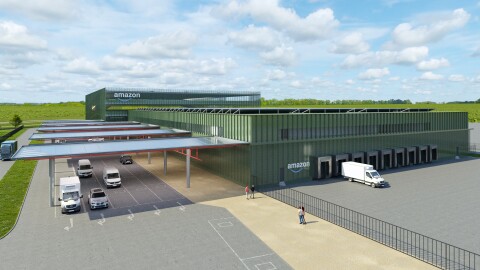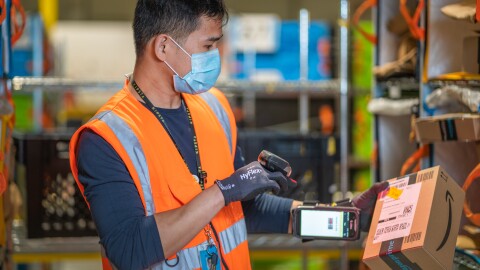London, September 27, 2019 – The UK needs an additional 38,000 workers with computer science-related skills, including 21,000 computer science graduates, to meet labour demands every year – or the economy could lose out on an estimated £33 billion a year by 2030, according to new research by Capital Economics.
To help close that gap, Amazon is launching Amazon Future Engineer in the UK – a comprehensive childhood-to-career programme to inspire, educate and enable children and young adults to try computer science. By supporting the recruitment and training of 50 secondary school computer science teachers and over 200 ‘Careers Leaders’, launching robotics workshops for 10,000 children and creating other opportunities to experience computer science, Amazon Future Engineer is set to reach more than one million children and young people across the UK over the next two years.
“Research shows the UK needs 21,000 more computer science graduates on average, every year, to meet the demands of the digital economy,” said Doug Gurr, UK Country Manager, Amazon. “By making computer science skills more widely accessible from childhood to career, we hope Amazon Future Engineer will inspire and empower young people, regardless of their background, to take up careers in computer science.”
Rt Hon Gavin Williamson CBE MP, Secretary of State for Education, said: “Today’s school pupils will go on to do jobs that don’t even exist yet because the world of technology and computing is progressing so quickly. This is why we’re making sure our schools and teachers equip young people with the skills and knowledge they’ll need to be successful in the future by expanding our IoT programme and investing an extra £14bn in schools over the next three years. The work of Amazon Future Engineer will support us in just that by harnessing Amazon’s reach and know-how to make sure that pupils from all backgrounds can access a cutting edge education and I look forward to seeing it in action.”
Engaging primary school pupils in robotics and coding
Through Amazon Future Engineer, ten thousand primary school pupils will have the opportunity to take part in free robotics workshops at Amazon fulfilment centres across the UK over the next two years, learning to program robots which use similar technology to what is used by Amazon to fulfil customer orders. The workshops, created alongside Fire Tech, are designed to give children first-hand experience of how technology works in the real world and have been accredited by the British Science Association. Amazon will also embark on a road trip across the UK, bringing the robotics workshops to primary schools around the country.
Additionally, Amazon has helped create an interactive dance-themed online coding tutorial together with non-profit organisation Code.org, featuring songs from leading artists, with the aim of reaching a million children in the UK. Globally, tens of millions of children and young people have already participated in Hour of Code tutorials since 2013. One hour of learning through Hour of Code is proven to have a positive impact on students, with a significant increase in the number of students saying they like computer science and perform better in computer science tasks.
Matt Thompson, Head Teacher, Brentnall Community Primary School, believes that getting younger children actively involved with computer sciences is key: “So many primary school-aged children express an interest in technology, but unfortunately we don’t get many opportunities to see it in action in the classroom. Giving children the opportunity to bring it to life in a creative and experiential way will only grow their interest. For some, it may be the first step on the journey towards an exciting computer sciences career.”
Helping recruit and train computer science teachers
Amazon is working with the education charity Teach First to support the recruitment and training of 50 secondary school computer science teachers. They will also support with the training of over 200 Teach First ‘Careers Leaders’, a programme run by the charity which supports leaders in schools to develop a long-term school-wide careers strategy to improve students’ opportunities.
The computer science teachers will be placed in schools serving low-income communities from next year and will have the opportunity to embark on paid work experience at Amazon. Careers Leaders and computer science students will also have the chance to visit Amazon on work insight days. Teach First’s approach of training teachers and placing them in schools in low-income areas is proven to boost the GCSE performance of pupils. After two years of running Amazon Future Engineer in the UK, this investment in teachers is expected to benefit 50,000 secondary school students.
Enabling Tech Careers through Bursaries and Apprenticeships
For students wishing to pursue computer sciences in higher education, Amazon is funding 120 apprenticeships in software development engineering, automation and advanced mechatronics, enabling a diverse range of applicants to enter the computer science field. Participants will benefit from on-the-job work experience and classroom-based learning. Amazon is also funding 20 bursaries for students studying computer science at UK universities, enabling students from low-income backgrounds to pursue technology careers.
Amazon Future Engineer is part of the Amazon in the Community programme, which aims to ensure more children and young adults have the resources and skills they need to build their best and brightest futures, especially those from low-income communities in the areas where Amazon has a physical presence.
You can find out about Amazon Future Engineer at http://www.amazonfutureengineer.co.uk, and more about the Amazon in the Community programme at https://www.aboutamazon.co.uk/amazon-in-the-community.
- ENDS –
Research by Capital Economics
This research has been commissioned by Amazon from Capital Economics, an independent macroeconomics research consultancy. The views expressed remain those of Capital Economics and are not necessarily shared by Amazon. While every effort has been made to ensure that the data quoted and used for the research behind this document is reliable, there is no guarantee that it is correct, and Capital Economics Limited and its subsidiaries can accept no liability whatsoever in respect of any errors or omissions. This document is a piece of economic research and is not intended to constitute investment advice, nor to solicit dealing in securities or investments.
In the report Capital Economics has used a broad definition of ‘computer science related’ jobs, defined as a set of occupations that are likely to require some level of skill in the field of computers and computing processes. It is based on a subset of STEM occupations as defined by the UK Commission for Employment and Skills. The SOC (2010) codes for computer science related occupations are: 1136, 2133, 2134, 2135, 2136, 2137,2139,3131,3132 and 5245.
Capital Economics has estimated that between 2018 and 2030 there will be demand for 38,000 computer science related vacancies to be filled each year (total of 490,000). This demand comes from a combination of filling the current shortage, replacing people leaving jobs, growth in industries needing computer science skills and new jobs from greater adoption of technology. If skills are sufficient to meet this demand for workers, these jobs will contribute £33 billion to the economy annually by 2030.
About Amazon
Amazon is guided by four principles: customer obsession rather than competitor focus, passion for invention, commitment to operational excellence, and long-term thinking. Customer reviews, 1-Click shopping, personalised recommendations, Prime, Fulfillment by Amazon, AWS, Kindle Direct Publishing, Kindle, Fire tablets, Fire TV, Amazon Echo, and Alexa are some of the products and services pioneered by Amazon.











